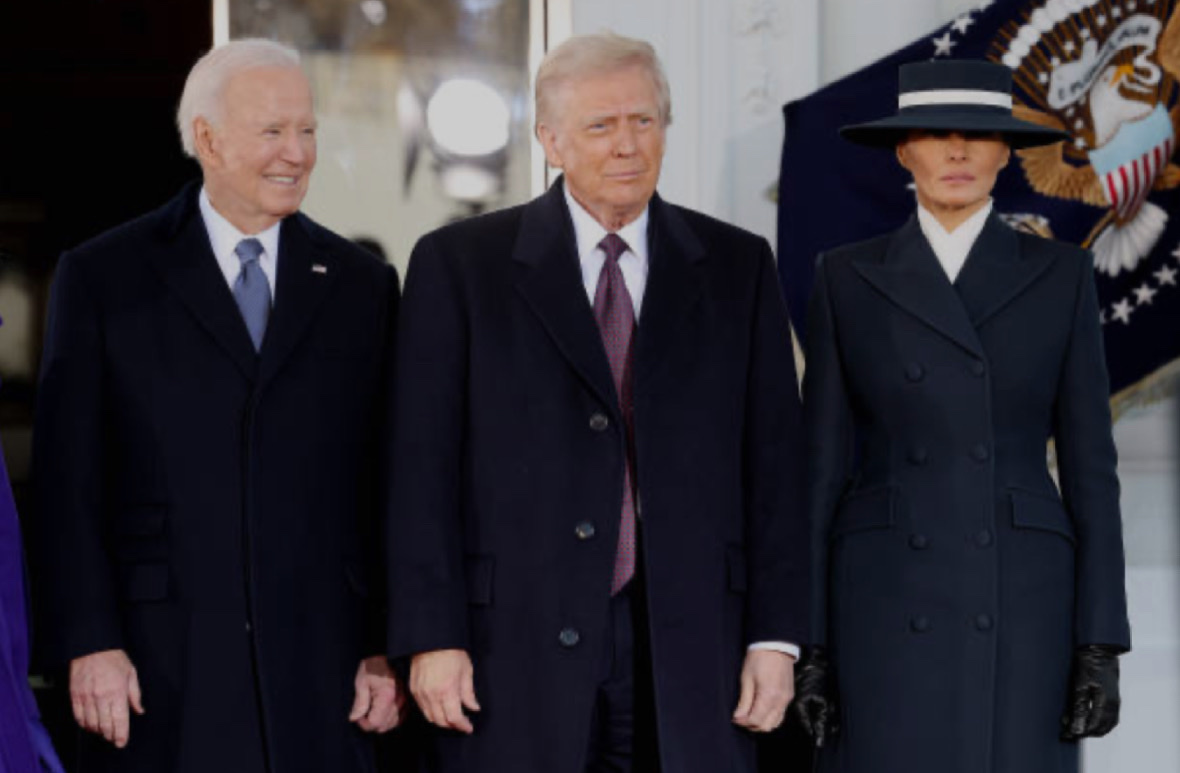At Inauguration, Trump Declares He Was ‘Saved by God’ to Lead America to Greatness

SHARE
At his second inauguration on January 20, 2025, Donald Trump declared he had been “saved by God” to lead America to a new era of greatness. The ceremony, held in the U.S. Capitol Rotunda due to cold weather, blended religious symbolism and patriotic fervor, reflecting Trump’s belief in a divinely inspired mission to restore the nation’s prosperity and respect on the global stage.
Trump’s inaugural address emphasized a “golden age” for America, asserting that his leadership would end the nation’s decline and restore its foundational values. He alluded to an assassination attempt during his campaign, describing it as a turning point in his conviction that divine intervention had preserved his life for a higher purpose.
Trump’s rhetoric connected his political agenda with religious undertones, stating, “Our country will flourish and be respected again all over the world, including by people of religion, faith, and goodwill.”
The inauguration was marked by prayers from prominent faith leaders. Cardinal Timothy Dolan, offering an invocation, called for God’s wisdom to guide Trump’s leadership, while Rev. Franklin Graham, a long-time supporter, praised divine intervention in Trump’s political resilience. Graham’s remarks highlighted the notion that God had raised Trump from adversity to strength, resonating with the president’s narrative of divine destiny.
The event included participation from a diverse array of religious figures. Rabbi Ari Berman invoked the prophet Jeremiah, envisioning America as a beacon of greatness. Pastor Lorenzo Sewell incorporated elements of Martin Luther King Jr.’s “I Have a Dream” speech, aligning Trump’s inauguration with themes of unity and renewed hope. However, the absence of Imam Husham Al-Husainy, initially announced as a participant, raised questions, as no explanation for his absence was provided.
Religious themes extended to an earlier service at St. John’s Church, where Trump, Vice President JD Vance, and other dignitaries gathered. Prayers and Scripture readings, including Proverbs and Micah, emphasized justice, mercy, and humility. The service avoided partisanship, aiming for unity and spiritual reflection. Hymns such as “O God, Our Help in Ages Past” and “America the Beautiful” underscored the solemnity and historical continuity of the occasion.
Trump’s inauguration coincided with Martin Luther King Jr. Day, amplifying the event’s symbolic weight. While some faith leaders celebrated Trump’s vision, others used the day to critique his policies. At Ebenezer Baptist Church in Atlanta, Rev. William Barber II challenged Trump’s claim of a mandate, emphasizing justice and compassion as core American values.
Flanked by influential figures, including tech CEOs and political allies, Trump projected an image of renewed confidence. The presence of his family, cabinet nominees, and high-profile supporters underscored the political and cultural significance of the event.
The ceremony not only marked Trump’s return to power but also highlighted the intertwining of faith and politics in his vision for America’s future. His declaration that “Americans kneel to God and to God alone” encapsulated the spiritual narrative framing his administration’s goals.
*Cover Photo/Thumbnail Photo from Getty Images
RELATED ARTICLES

Unfold Bigger Possibilities with the King of Foldables: The HUAWEI Mate X7 — Now Available for PHP 119,999

ISSA Introduces New Artistic Chapter with Latest Release “Alaala”

Smartwatch-Level Performance for Real-World Movement: The HUAWEI Band 11 Series Elevates the Band Experience for as Low as PHP 2,399

Mark Wahlberg and Jonathan Roumie on Faith That Calls for Sacrifice








